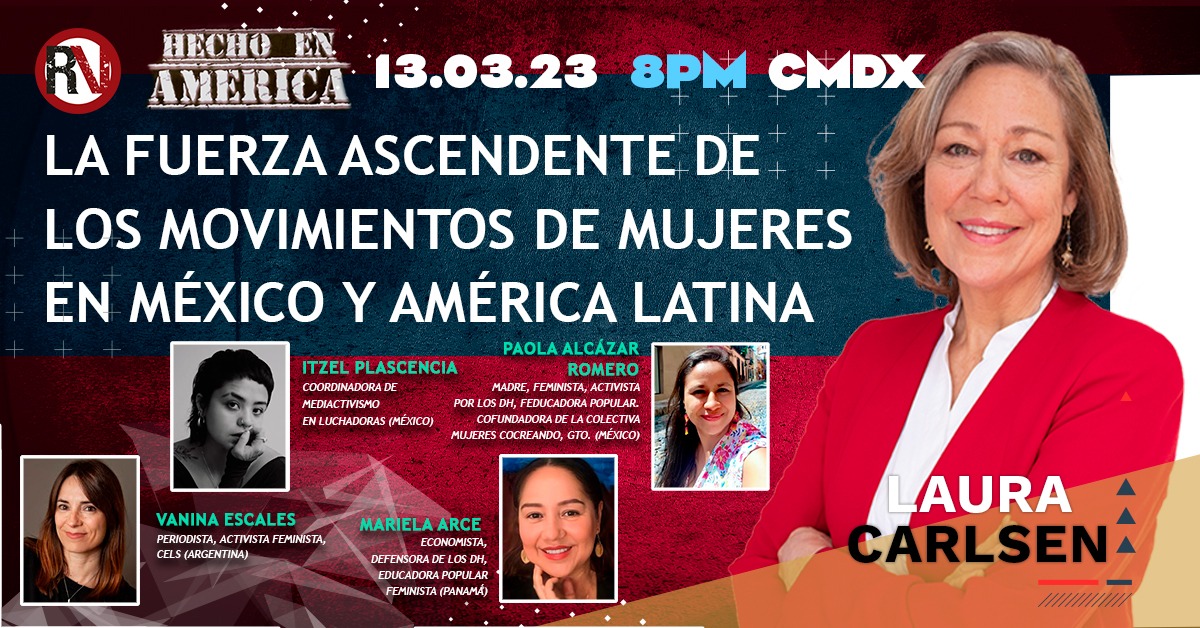This Week in the Americas
NAFTA, Inequality, and Immigration
By Laura Carlsen
Fourteen years after the signing of the North American Free Trade Agreement (NAFTA) trade between the two countries has grown, and so have the huge gaps in how people live. Since NAFTA, the Mexican economy rests on four pillars: the informal economy, non-renewable resources (oil and gas), remittances from migrants in the United States, and drug trafficking. To call that a shaky foundation would be an understatement.
To enter into an agreement that failed to take into account the needs of vulnerable sectors of the Mexican economy and then wash our hands of the consequences is not only unfair, it entails consequences for the United States as well. Uncontrollable immigration is one of them. Although immigration is an integral component of globalization, it violates human rights when people no longer have the option of staying home and are deemed criminals in the receiving country.
Laura Carlsen (lcarlsen@ciponline.org) is director of the Americas Policy Program (www.americaspolicy.org) in Mexico City.
See full article online at:
http://americas.irc-online.org/am/4705
New from the Americas Program
The United States, Bolivia, and Dependency
By Stephen Zunes
Much to the chagrin of the Bush administration, Bolivian president Evo Morales has been going to great lengths to separate his country from its economic dependence on the United States.
To understand Bolivian sensitivities to U.S. aid and its conditions, it is important to look back to what happened to a previous leftist government in that country which instead adjusted its politics to the politics of U.S. cooperation. Unless and until Washington’s policies toward Latin America are successfully challenged from within the United States, there are real limits as to how much Bolivia’s government can improve the economic conditions of its people.
Stephen Zunes is a professor of Politics at the University of San Francisco and a contributor to the CIP Americas Policy Program, www.americaspolicy.org.
See full article online at:
http://americas.irc-online.org/am/4701
Clinton’s Lack of Respect for Latin America
By Tom Barry
In Hillary Clinton’s outline of her foreign policy agenda in the new issue of Foreign Affairs, titled "Security and Opportunity for the Twenty-first Century," Clinton laments that the Bush administration "has squandered the respect, trust, and confidence of even our closest allies and friends." As president, Clinton promises to introduce America to the world, and to demonstrate that the "United States is committed to building a world we want, rather than simply defending against a world we fear." That world, says Clinton, will be "a world of security and opportunity."
If Clinton wants respect for U.S. foreign policy, then she will need to show more respect for our southern neighbors. As a start, Clinton should tell Latin Americans that she respects their right to decide for themselves what is needed to ensure "security and opportunity."
Tom Barry is a senior analyst with the Americas Policy Program (www.americaspolicy.org) of the Center for International Policy.
See full article online at:
http://americas.irc-online.org/am/4695
Who Controls Ecuador’s Water?
By Sara Grusky
It is a well kept secret that Bechtel won a contract to privatize the water in Ecuador’s largest city, Guayaquil, just months after the massive citizen protests that threw Bechtel out of Bolivia. In October 2000, a local Bechtel subsidiary, Interagua, signed a 30-year concession contract to run the water and sanitation services in Guayaquil.
Now, more than six years later, after epidemics, poor service, and other unanswered complaints, the residents of Guayaquil are demanding damages from the company for water contamination, an end to water cut-offs, and a return to local, public control.
Sara Grusky is a senior organizer with the Water for All Campaign at Food & Water Watch (www.fwwatch.org). She works with communities and organizations across the Americas that are working to replace corporate control of their water resources with local democratic control. She can be reached at sgrusky(at)fwwatch.org.
See full article online at:
http://americas.irc-online.org/am/4686
In response to Sign on to the Moratorium on Free Trade Agreements
(http://americas.irc-online.org/am/4240)
Why sign on? Seen from the vantage point of where I am (Vietnam), Free Trade Agreements can work reasonably
well—yes, there are problems, but I have yet to meet a Vietnamese who wants to go back to the time
before the FTA. More to the point—why should I care more about American workers than about the truly
poor—who don’t live in the U.S.?
May I suggest that what is needed is not FTA boosterism or anti-FTA demonizing. It is a *critical*
appraisal of economic policies, away from silly slogans like "pro-free trade" or "pro-Fair
trade."
Shawn McHale
Trade deals have only helped the rich folks of all the nations involved. And of course, the money
has to come from the workers of each nation.
Molly Madden
In response to Fujimori’s Trial: An Opportunity for Peru
(http://americas.irc-online.org/am/4646)
Your article is propaganda laced with false information. Fujimori ENDED terrorism, ENDED the worst
inflation in the world (under Garcia), from over 7000% to under 20% in 1 year. Fujimori built over
10,000 schools, 3000 bridges, repaved the pan americana, and 1000s of kilometers of new roads, and
brought hope and stability back to Peru.
One of the GREATEST leaders of that country. Vive El Chino.
Randy Levine



